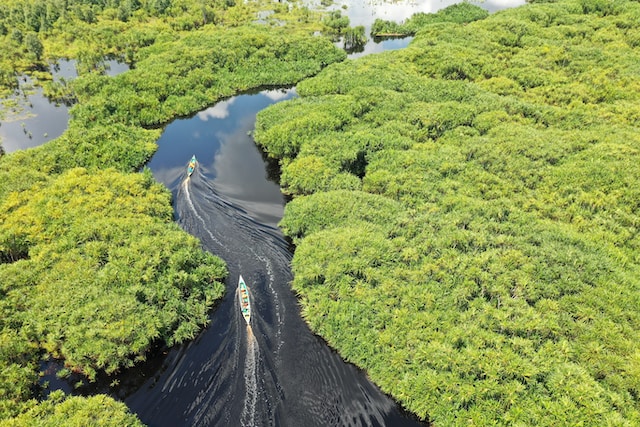Ecosystems, the intricate webs of life, are a testament to the remarkable diversity present on Earth.
Ecosystem diversity, an essential facet of this intricate balance, plays a pivotal role in maintaining the health of our planet.
In this comprehensive article, we delve into the significance, components, and implications of ecosystem diversity.
Let’s embark on a journey to understand the intricate tapestry that forms the foundation of life itself.

What is ecosystem diversity?
Ecosystem diversity refers to the variety of ecosystems within a given region or the entire planet.
Each ecosystem, whether a rainforest, coral reef, or desert, has its own unique set of species, plants, animals, and microorganisms adapted to the specific environmental conditions of that region.
This diversity creates a harmonious balance that contributes to the overall health of the Earth.
The components of ecosystem diversity
Ecosystem diversity encompasses a multitude of elements that collectively shape our world’s environmental tapestry. Some key components include:
1. Biodiversity
Biodiversity, a critical subset of ecosystem diversity, highlights the variety of life forms present within ecosystems. This includes genetic diversity, species diversity, and ecosystem diversity, all of which are intertwined in a delicate dance of interdependence.
2. Habitat Variability
Ecosystems are not uniform; they exist in a spectrum of habitats ranging from lush forests to harsh deserts. This variability is a testament to the adaptability of life forms and the diverse range of conditions under which they thrive.
3. Ecological Processes
The intricate processes that occur within ecosystems, such as nutrient cycling, predation, and symbiosis, contribute to their diversity. These processes maintain the delicate equilibrium necessary for the survival of the organisms within the ecosystem.
4. Climatic Zones
From the icy poles to the tropical equator, the world’s climatic zones harbor a rich assortment of flora and fauna adapted to the specific temperature and precipitation patterns of each region.
The significance of ecosystem diversity
Ecosystem diversity is not just a scientific concept; it has profound implications for our planet’s well-being:
Resilience: Diverse ecosystems are more resistant to disturbances, such as climate change, pollution, or disease outbreaks. This resilience ensures the continued provision of ecosystem services.
Medicinal Value: Many of the plants and organisms found within diverse ecosystems have medicinal properties that have the potential to benefit human health.
Economic Impact: Ecosystems, whether through agriculture, fisheries, or tourism, contribute significantly to economies. The loss of ecosystem diversity can have far-reaching economic consequences.
How humans impact ecosystem diversity
Human activities, ranging from deforestation to industrialization, have led to a significant decline in ecosystem diversity. However, recognizing our impact opens doors to positive change:
Conservation Efforts: Establishing protected areas, restoring degraded ecosystems, and promoting sustainable land use are crucial steps toward preserving ecosystem diversity.
Awareness and Education: Educating communities about the value of ecosystem diversity fosters a sense of responsibility and encourages sustainable practices.
Policy and Regulation: Governments and international bodies play a pivotal role in enacting policies that safeguard ecosystem diversity and encourage environmentally responsible practices.
Conclusion
Ecosystem diversity stands as a testament to the incredible array of life forms that call our planet home. It is a treasure trove of resilience, beauty, and interdependence.
As stewards of the Earth, it’s our responsibility to recognize the value of ecosystem diversity and work collectively to ensure its preservation for generations to come.

